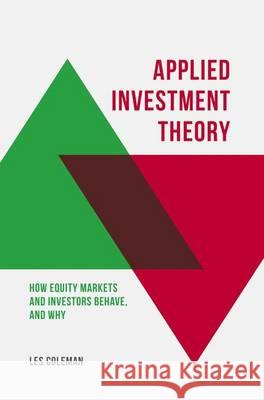Applied Investment Theory: How Markets and Investors Behave, and Why » książka
topmenu
Applied Investment Theory: How Markets and Investors Behave, and Why
ISBN-13: 9783319439754 / Angielski / Twarda / 2017 / 246 str.
Kategorie:
Kategorie BISAC:
Wydawca:
Palgrave MacMillan
Język:
Angielski
ISBN-13:
9783319439754
Rok wydania:
2017
Wydanie:
2016
Ilość stron:
246
Waga:
0.59 kg
Wymiary:
16.6 x 24.9 x 2.3
Oprawa:
Twarda
Wolumenów:
01











